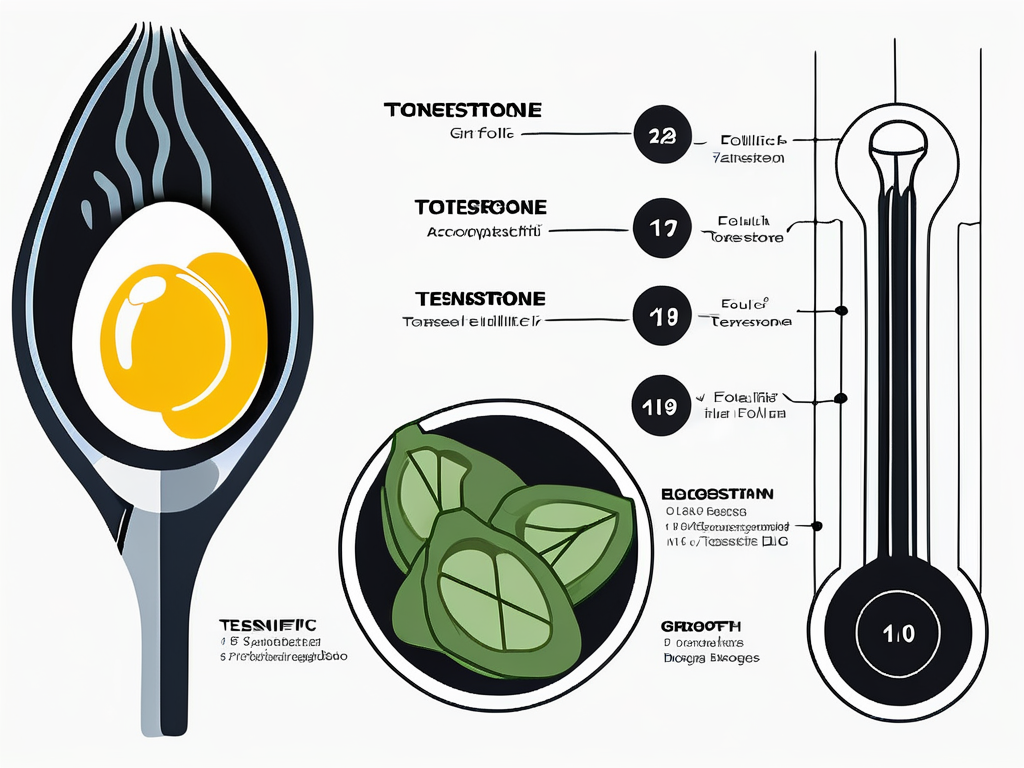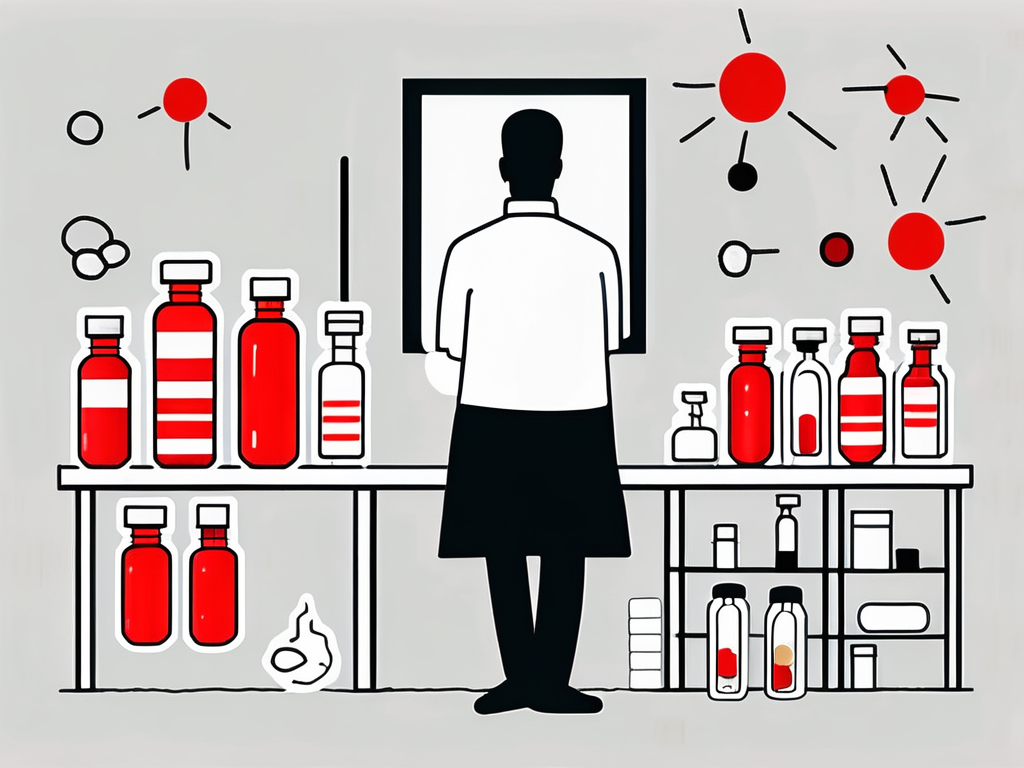How to Increase Testosterone for Beard Growth
How to Increase Testosterone for Beard Growth: Proven Methods to Try Out
Did you know that the growth of a beard is related to the level of testosterone in your body? It's true! Testosterone, the primary male sex hormone, plays a crucial role in the development and maintenance of facial hair.
So, let's see how you can increase the testosterone to boost the beard growth. Read on and learn:
- The role of testosterone in beard growth
- Natural dietary and exercise methods to boost testosterone
- Medical interventions and treatments
- Lifestyle changes for maintaining healthy testosterone levels
3 Ways to Boost Testosterone Levels and Enhance Growth of Your Beard
To increase testosterone for beard growth, focus on natural methods like a balanced diet rich in zinc and vitamins, regular exercise including weightlifting and HIIT, and ensuring quality sleep and stress management.
For more significant boosts, consider medical interventions like testosterone replacement therapy under professional supervision. Let's talk more about these ways of increasing your testosterone levels:
1. Natural Methods
-
Diet Changes for Higher Testosterone: Your diet plays a crucial role in testosterone production. Incorporating foods rich in zinc, such as oysters, beef, and pumpkin seeds, can help increase testosterone levels naturally.
Other testosterone-boosting foods include salmon, tuna, eggs, and fortified cereals. Additionally, herbs and spices like ginger, ashwagandha, and fenugreek have been linked to higher testosterone levels and can be easily added to your diet.
-
Exercise and Testosterone Production: Regular exercise, especially resistance training like weightlifting, can boost testosterone levels.
High-intensity interval training (HIIT) and aerobic exercises like running or cycling are also beneficial. Aim for at least 150 minutes of moderate exercise or 75 minutes of vigorous exercise per week to maximize testosterone production.
2. Medical Interventions
-
Testosterone Replacement Therapy (TRT): In cases where natural methods are not sufficient, TRT may be considered. This therapy involves administering exogenous testosterone through gels, injections, patches, or pellets.
TRT should only be undertaken under medical supervision due to potential risks and side effects, such as acne, fluid retention, and cardiovascular implications.
-
Medications to Boost Testosterone: Certain medications, like clomiphene citrate or human chorionic gonadotropin (HCG), can stimulate the body's natural testosterone production.
These medications are prescribed and monitored by healthcare providers, making them a viable option for those who cannot undergo TRT.
3. Lifestyle Changes
-
Impact of Sleep on Hormone Production: Quality sleep is vital for maintaining optimal testosterone levels. Aim for 7-9 hours of uninterrupted sleep each night to support hormonal balance and beard growth.
Adequate sleep helps regulate cortisol levels, a hormone that can negatively affect testosterone production when elevated.
-
Stress Management for Hormonal Balance: Chronic stress can lower testosterone production. Effective stress management techniques, such as mindfulness, relaxation exercises, and engaging in hobbies, can help maintain hormonal balance.
Regular physical activity also reduces stress and supports testosterone levels by releasing endorphins.
The Science Behind Testosterone and Hair Growth

Testosterone affects the hair follicles by stimulating the growth phase (anagen) and promoting the production of thicker, coarser hair strands.
It also increases the size of the hair follicles, resulting in a more robust and denser beard. Additionally, testosterone can stimulate the production of sebum, an oily substance that moisturizes and protects the hair and skin.
Furthermore, testosterone interacts with enzymes in the hair follicles to convert to dihydrotestosterone (DHT), a potent form of the hormone that plays a key role in hair growth.
DHT binds to receptors in the hair follicles, prolonging the anagen phase and preventing premature shedding, leading to longer and thicker beard growth.
Why Some Men Struggle with Beard Growth
While testosterone is vital for beard growth, some men naturally have lower levels of this hormone or may experience hormonal imbalances.
Other factors that can affect beard growth include genetics, age, stress levels, and underlying medical conditions. If you're having trouble growing a beard, don't worry – there are several natural ways to boost your testosterone levels and enhance beard growth.
It's essential to maintain a healthy lifestyle, including regular exercise, adequate sleep, and a balanced diet rich in nutrients that support testosterone production.
Foods like lean meats, nuts, seeds, and leafy greens can provide essential vitamins and minerals that contribute to hormone regulation and overall well-being.
Additionally, reducing stress levels through relaxation techniques such as meditation or yoga can help optimize testosterone levels and promote healthy beard growth.
Precautions and Possible Side Effects
While testosterone is essential for beard growth, it's important to note that excessive levels of this hormone can have adverse effects on your health.
High testosterone levels can lead to an increased risk of cardiovascular problems, liver damage, acne, and aggressive behavior. It's crucial to maintain a balance and consult with a healthcare professional before making any significant changes.

Moreover, individuals with high testosterone levels may also experience disruptions in their endocrine system, leading to irregularities in other hormone levels.
This imbalance can manifest in symptoms like mood swings, irregular menstrual cycles in women, and decreased sperm production in men. Therefore, monitoring testosterone levels is not only essential for beard growth but also for overall hormonal health.
When to Consult a Medical Professional
If you've tried natural methods and lifestyle changes but still struggle with low testosterone levels and beard growth, it's time to consult a medical professional.
They can assess your hormone levels, determine any underlying issues, and provide appropriate recommendations or interventions. Remember, seeking expert advice is always a wise choice when it comes to your health.
Furthermore, medical professionals can offer personalized solutions tailored to your specific needs, whether it involves hormone replacement therapy, dietary adjustments, or targeted exercises to boost testosterone production.
These interventions aim to optimize your hormonal balance and promote healthy beard growth in a safe and effective manner.
Achieve the Beard of Your Dreams by Boosting Testosterone Naturally
Understanding the role of testosterone in beard growth is the first step toward enhancing your facial hair potential. By implementing natural ways to increase testosterone levels, you can improve your chances of growing a luscious, full beard.
Just remember to prioritize your health and consult with professionals when needed. So, get ready to embrace your inner lumberjack and unlock the power of testosterone for impressive beard growth with the help of The Beard Struggle!

